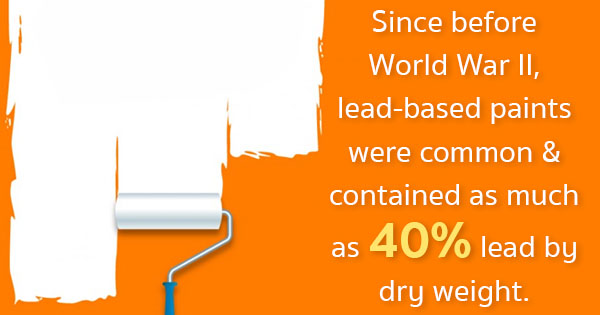The older your home is, the more likely it is to contain lead paint. Before World War II, lead-based paints were extremely common and contained as much as 40% lead by dry weight. Indeed, almost 75% of U.S. housing still contains some amount of lead paint.
Something that many people see as an inner city problem is actually quite widespread, and it could cause serious health repercussions for you and your family — particularly for the very young and the very old. Already in the U.S., more than three million children under the age of six has been exposed to toxic lead levels.
It is important to get your home tested, especially if it is not a new home and if you have or expect to have children. However, contrary to popular belief, you should not use home lead test kits. For the safety of your family, make sure to contact an agency with professionals that carry lead inspector certifications, who are EPA lead certified, and have received extensive lead inspector training.
In the meantime, here’s what you need to know about lead in your home:
- Particularly hazardous areas include places in the home where older layers of paint are exposed, or that get a significant amount of wear and tear. This may include doors and door frames, windows and window sills, stairs, railings, and porches.
- Lead dust usually results from indoor sources, like deteriorating lead-based paint, but can also be tracked into the home from soil outside, which is contaminated by deteriorating exterior lead-based paint.
- One common activity that is likely to expose lead paint: renovation and repair. By disturbing and demolishing aspects of your home, you are likely to send lead dust into the air, where you and your kids will breathe it into your lungs, and thus your bloodstream.
- Another way lead can get into your home is through the pipes. It is used in water service lines and household plumbing materials. Over time, it can leach into the water. Lead pipes and lead solder were used commonly as recently as 1986, so remember to get your home and pipes inspected ASAP
If you plan on renovating, make sure to enlist the help of someone with lead renovator training and a lead inspector certification. Lead certification courses offer an opportunity to understand how to detect and eliminate the threat of lead in your home.


